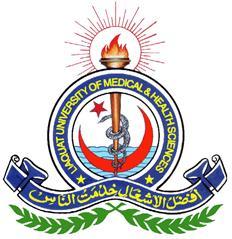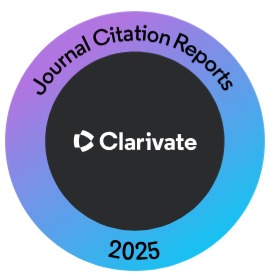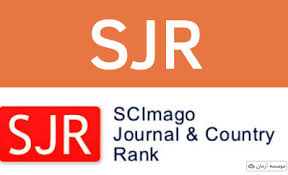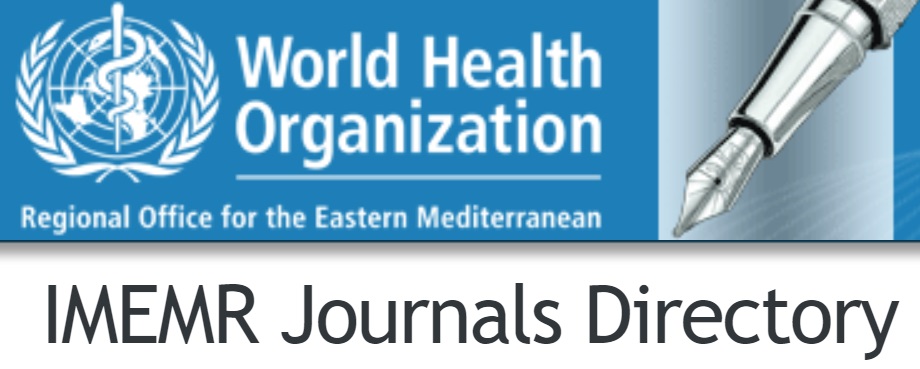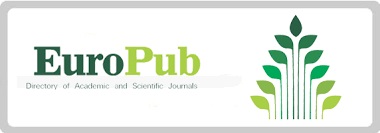Ethics and Communication in Providing Health Education in Midwifery Services
Keywords:
Age, Education, Employment, Ethics, Communication, Midwifery ServicesAbstract
OBJECTIVE: The aim was to analyze the differences in providing modules and assistance from a certified senior midwife in applying ethics and communication in providing health education in midwifery services.
METHODOLOGY: This quantitative research used cluster sampling and was conducted in Makassar, Maros, Pangkep, and Barru cities between January and April 2024. Slovin formula and cluster sampling were used. Each region was divided into 30 samples, with a total sample size of 120. The midwife group was split into a control group that was given a health ethics and communication module (This module is developed based on the curriculum and combined with existing regulations from the Ministry of Health). The intervention group was provided with assistance from a certified senior midwife. Eight midwives from the control and intervention groups were randomly assigned to four cities, and an independent t-test was conducted to compare the control and intervention groups. SPSS was used for analytical tools.
RESULTS: The findings show that age, education, and employment are all related to ethics and communication, with a p-value of <0.005 in both the control and intervention groups. The control and intervention groups showed significant differences in ethics and communication, with a p-value of 0.000 for both.
CONCLUSION: Communication and ethics differences exist between the control and intervention groups. The findings emphasize how crucial it is to implement assistance from a certified senior midwife to enhance the quality of ethics and communication among these groups.
References
Glass N, Jalazai R, Spiegel P, Rubenstein L. The crisis of maternal and child health in Afghanistan. Confl Health. 2023; 17(1): 1–10.
Firoozehchian F, Zareiyan A, Geranmayeh M, Behboodi Moghadam Z. Domains of competence in midwifery students: a basis for developing a competence assessment tool for Iranian undergraduate midwifery students. BMC Med Educ. 2022; 22(1): 1–15.
Inoue N, Nakao Y, Yoshidome A. Development and Validity of an Intrapartum Self-Assessment Scale Aimed at Instilling Midwife-Led Care Competencies Used at Freestanding Midwifery Units. Int J Environ Res Public Health. 2023; 20(3): 1–13.
Khosravi S, Babaey F, Abedi P, Kalahroodi ZM, Hajimirzaie SS. Strategies to improve the quality of midwifery care and developing midwife-centred care in Iran: analyzing the attitudes of midwifery experts. BMC Pregnancy Childbirth. 2022; 22(1): 40–52.
Glenton C, Javadi D, Perry HB. Community health workers at the dawn of a new era: 5. Roles and tasks. Health Res Policy Syst. 2021; 19(3): 1–17.
Mantula F, Chamisa JA, Nunu WN, Nyanhongo PS. Women's Perspectives on Cultural Sensitivity of Midwives During Intrapartum Care at a Maternity Ward in a National Referral Hospital in Zimbabwe. SAGE Open Nurs. 2023; 9: 1–12.
Shahabnia S, Lotfi R, Rahimzadeh M, Yazdkhasti M, Tourzani ZM. Effects of counseling professional ethics principles on midwifery professional codes of ethics compliance and applicability rate among midwives in community health centers: A randomized clinical trial in Iran. Pan African Medical Journal. 2020; 35: 1–14.
Khosravi S, Babaey F, Abedi P, Kalahroodi ZM, Hajimirzaie SS. Strategies to improve the quality of midwifery care and developing midwife-centred care in Iran: analyzing the attitudes of midwifery experts. BMC Pregnancy Childbirth. 2022; 22(1): 1–11.
Yuill C, McCourt C, Cheyne H, Leister N. Women's experiences of decision-making and informed choice about pregnancy and birth care: A systematic review and meta-synthesis of qualitative research. BMC Pregnancy Childbirth. 2020; 20(1): 1–21.
Moudatsou M, Stavropoulou A, Philalithis A, Koukouli S. The role of empathy in health and social care professionals. Healthcare (Switzerland). 2020; 8(1): 7–9.
Tengera O, Nankumbi J, Nalwadda G, Muwanguzi PA, Ngabirano TD. Empathy among midwives at a referral hospital in Uganda. Int J Afr Nurs Sci. 2020; 13(February 2019): 100238.
Jin Y, Wu Y, Li J. Midwife empathy and its association with the childbirth experience: a cross-sectional study. BMC Pregnancy Childbirth. 2022; 22(1): 1–10.
McIntosh T, Antes AL, DuBois JM. Navigating Complex, Ethical Problems in Professional Life: a Guide to Teaching SMART Strategies for Decision-Making. J Acad Ethics. 2021; 19(2): 139–156.
Bhati D, Deogade MS, Kanyal D. Improving Patient Outcomes Through Effective Hospital Administration: A Comprehensive Review. Cureus. 2023 Oct 26;
Hyatt J, Gruenglas J. Ethical Considerations in Organizational Conflict. In: Conflict Management - Organizational Happiness, Mindfulness, and Coping Strategies. Intech Open; 2023.
Bag S, Srivastava G, Gupta S, Sivarajah U, Wilmot NV. The effect of corporate ethical responsibility on social and environmental performance: An empirical study. Industrial Marketing Management. 2024 Feb; 117: 356–70.
Sharkiya SH. Quality communication can improve patient-centred health outcomes among older patients: a rapid review. BMC Health Serv Res. 2023; 23(1): 1–14.
Khalil AI, Hantira NY, Alnajjar HA. The Effect of Simulation Training on Enhancing Nursing Students' Perceptions to Incorporate Patients' Families Into Treatment Plans: A Randomized Experimental Study. Cureus. 2023; 15(8): 1–17.
Ukoha WC, Mtshali NG. Integration of preconception care into the bachelor of nursing curriculum: An exploratory qualitative study. Heliyon. 2023; 9(2): e13304.
Daradkeh M. Navigating the Complexity of Entrepreneurial Ethics: A Systematic Review and Future Research Agenda. Sustainability (Switzerland). 2023; 15(14): 1–30.
Schmidt AT, Engelen B. The ethics of nudging: An overview. Philos Compass. 2020; 15(4): 1–13.
Nguyen NTT, Nguyen NP, Thanh Hoai T. Ethical leadership, corporate social responsibility, firm reputation, and firm performance: A serial mediation model. Heliyon. 2021; 7(4): e06809.
Guo K. The Relationship Between Ethical Leadership and Employee Job Satisfaction: The Mediating Role of Media Richness and Perceived Organizational Transparency. Front Psychol. 2022; 13(5): 1–13.
Buljac-Samardzic M, Doekhie KD, van Wijngaarden JDH. Interventions to improve team effectiveness within health care: a systematic review of the past decade. Hum Resour Health. 2020; 18(1): 2–12.
Zhang W, Zeng X, Liang H, Xue Y, Cao X. Understanding How Organizational Culture Affects Innovation Performance: A Management Context Perspective. Sustainability. 2023; 15(8): 6644–56.
Baldwin A, Capper T, Harvey C, Willis E, Ferguson B, Browning N. Promoting nurses' and midwives' ethical responsibilities towards vulnerable people: An alignment of research and clinical practice. J Nurs Manag. 2022; 30(7): 2442–7.
Cheraghi R, Valizadeh L, Zamanzadeh V, Hassankhani H, Jafarzadeh A. Clarification of ethical principle of the beneficence in nursing care: an integrative review. BMC Nurs. 2023 Mar 30; 22(1): 89.
Intensive Care Society State of the Art (SOA) 2022 Abstracts. J Intensive Care Soc. 2023 May 21; 24(1_suppl): 1–117.
Raghupathi V, Raghupathi W. The influence of education on health: An empirical assessment of OECD countries for the period 1995-2015. Archives of Public Health. 2020; 78(1): 1–18.
Darling-Hammond L, Flook L, Cook-Harvey C, Barron B, Osher D. Implications for educational practice of the science of learning and development. Appl Dev Sci. 2020 Apr 2; 24(2): 97–140.
Søvold LE, Naslund JA, Kousoulis AA, Saxena S, Qoronfleh MW, Grobler C, et al. Prioritizing the Mental Health and Well-being of Healthcare Workers: An Urgent Global Public Health Priority. Front Public Health. 2021 May 7; 9.
Chimezie RO. Health Awareness: A Significant Factor in Chronic Diseases Prevention and Access to Care. J Biosci Med (Irvine). 2023; 11(02): 64–79.
Cerf ME. The social-education-economy-health nexus, development and sustainability: perspectives from low- and middle-income and African countries. Discover Sustainability. 2023 Sep 4; 4(1): 37.
Rehmann-Sutter C, Timmermans DRM, Raz A. Non-invasive prenatal testing (NIPT): is routinization problematic? BMC Med Ethics. 2023; 24(1): 1–11.
Hastings-Tolsma M, Temane A, Tagutanazvo OB, Lukhele S, Nolte AG. Experience of midwives in providing care to labouring women in varied healthcare settings: A qualitative study. Health SA Gesondheid. 2021; 26(Un 2015): 1–12.
Honkavuo L. Midwifery students' experiences of support for ethical competence. Nurs Ethics. 2022 Feb 27; 29(1): 145–56.
Simbar M, Kiani Z, Nazarpour S, Babaei F. Development and validation of the code of ethics for midwives in Iran. BMC Med Ethics. 2023 Oct 4; 24(1): 76.
Filby A, McConville F, Portela A. What Prevents Quality Midwifery Care? A Systematic Mapping of Barriers in Low and Middle-Income Countries from the Provider Perspective. PLoS One. 2016 May 2; 11(5): e0153391.
Downloads
Published
How to Cite
Issue
Section
License
Copyright (c) 2025 Journal of Liaquat University of Medical & Health Sciences

This work is licensed under a Creative Commons Attribution-NonCommercial-ShareAlike 4.0 International License.
Submission of a manuscript to the journal implies that all authors have read and agreed to the content of the undertaking form or the Terms and Conditions.
When an article is accepted for publication, the author(s) retain the copyright and are required to grant the publisher the right of first publication and other non-exclusive publishing rights to JLUMHS.
Articles published in the Journal of Liaquat University of Medical & health sciences are open access articles under a Creative Commons Attribution-Noncommercial - Share Alike 4.0 License. This license permits use, distribution and reproduction in any medium; provided the original work is properly cited and initial publication in this journal. This is in accordance with the BOAI definition of open access. In addition to that users are allowed to remix, tweak and build upon the work non-commercially as long as appropriate credit is given and the new creations are licensed under the identical terms. Or, in certain cases it can be stated that all articles and content there in are published under creative commons license unless stated otherwise.


